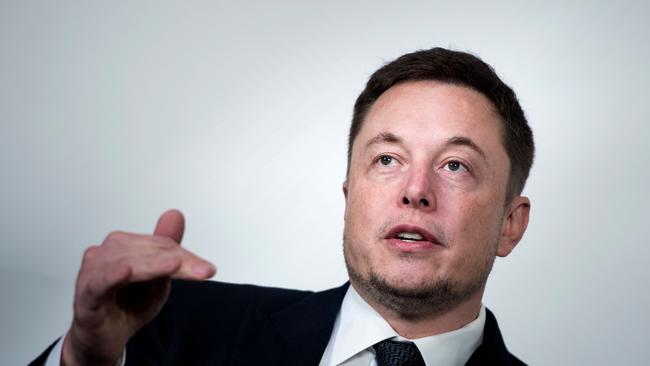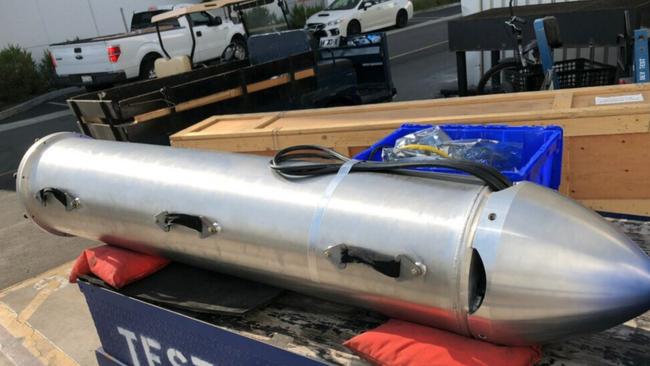Space pioneer Elon Musk cannot defy gravity
Musk’s sub was supposed to save the cave boys. Now he’s facing legal action for calling a rescuer a pedophile. What happened?

What the hell has happened to Elon Musk? Barely a week ago he flew to Thailand, intent upon putting his intelligence and self at the heart of the rescue of the country’s youthful cavers. Instead he faces possible legal action and global derision for baselessly accusing a rescue hero of being a pedophile. The man is his own driverless car.
Musk does not like being called a billionaire, even though he definitely is one. He’s a sort of mirror image of Donald Trump in this respect, but I suppose the point is he feels calling him only “a wildly rich guy” doesn’t match his true achievements. For the average multi-millionaire, I’d imagine, he is the guy who makes them survey their own empire, with its thousands of employees and market penetration, and wonder if they’ll ever achieve much in life.
Having made his pile founding PayPal, the electronic payment service, he is probably best known these days for Tesla, which makes electric cars. He is the founder of SpaceX, a private space exploration company, SolarCity, which seeks to power homes with the sun (and is contributing to the post-hurricane reconstruction of Puerto Rico), and Neuralink, which has something to do with implanting chips in your brain so you can cheat at pub quizzes. He also owns the Boring Company, which digs tunnels and sounds off-brand until you remember his idea for the Hyperloop, a train that hurtles along tubes faster than an aeroplane. Oh, and he wants to colonise Mars. Obviously.
To his fans, Musk is the real life Tony Stark, the fictional superhero who doubles as Iron Man. It was thus inevitable that one of them would eventually ask him to save the young footballers trapped in the Tham Luang caves and eventually, via Twitter on July 3, some completely random bloke from Swaziland did.
At first, Musk was humble, saying he was sure Thailand had it all in hand. Within moments, though, you could see that the “saviour of humanity” pilot light in his massive brain had found a new fuel source. Before long, still on Twitter, he was bouncing ideas off anybody who’d engage. Inflatable Kevlar tunnels? Battery pumps? Velcro slits? What air pressure was required? Advice, like the water, flooded in, and not all of it from completely random blokes in Swaziland. For a while, it was all reminiscent of what the internet used to be before the idiots and Nazis came along: a great, inspirational and non-hierarchical meeting place of ideas.
A day and a half later, Musk tweeted that engineers from SpaceX and the Boring Company were en route to Thailand. A day after that, he announced that he was building a tiny submarine. A day after that, he’d built it. By July 9, a mere six days after the first tweet, Musk and his sub were in the actual caves, offering their services to the rescue team. Whereupon the rescuers said “thanks but no thanks” and just did it with swimming.

Initially, Musk took this quite well, merely saying he’d leave his sub in Thailand for next time. (Next time?) Over the next few days, though, Musk found himself painted into the role of “PR-hungry tech bloke with more money than sense”. Even the BBC calling him “a billionaire” seems to have rankled. “Don’t call me a billionaire says the billionaire Elon Musk” was how this paper reported that little fight last week. Already, it was undignified.
Then, on Sunday, Vernon Unsworth, a veteran British caver whose maps of the Thai complex were critical to the rescue, suggested in an interview that the minisub plan had “absolutely no chance of working” because it “wouldn’t have gone round corners”. Previously he had called Musk’s involvement “a PR stunt” and suggested he “stick his submarine where it hurts”. So, in response, the man worth dollars 20 billion told his 22 million followers Unsworth was probably a “pedo” and logged off.
Now Musk may just feel he tried to do a good thing, and was ridiculed for it, and is having a tantrum. Or, despite not wanting to be called a billionaire, it may just be that this billionaire is very upset at not being treated like a billionaire. Or there may be something deeper going on.
Musk has form for attacking things he doesn’t quite understand. His ire over coverage of Tesla, for example, led him to suggest a crowdsourced “credibility” scoring website for journalists. In doing so, he coupled an ingenious idea with a fundamental misunderstanding of what he was actually talking about. Bluntly, it is not up to the public to vote on which journalists are telling the truth. What do they know? Truth is truth. What the public, or indeed Elon Musk, feels about it is immaterial.
Perhaps his fury with Unsworth has a similar root. Silicon Valley disrupts. When it works best, it does this by rendering expertise obsolete. Amazon knew better than a few thousand years of shopkeepers, and Uber told taxi drivers they’d wasted their lives with the Knowledge. A thousand apps and devices every day disrupt bankers, astronomers, sound engineers, photographers, fitness coaches, travel agents, brokers and bankers. SpaceX, if it works, will have disrupted space exploration. Any old profession, any meaty human accumulator of knowledge, is supposed to be on borrowed time. In the future, there will be no driving lessons. Doctors, lawyers and judges, too; one day the bots will come for you.
Musk’s sub was supposed to disrupt cave diving. As in, it was supposed to show that there is no amount of acquired knowledge and human experience that some bright bloke who sees that matrix can’t crunch down into code and make wholly accessible to people with no knowledge or experience at all. But in the end? Didn’t work. Humans did what he still could not. That’s got to hurt.
The Times






